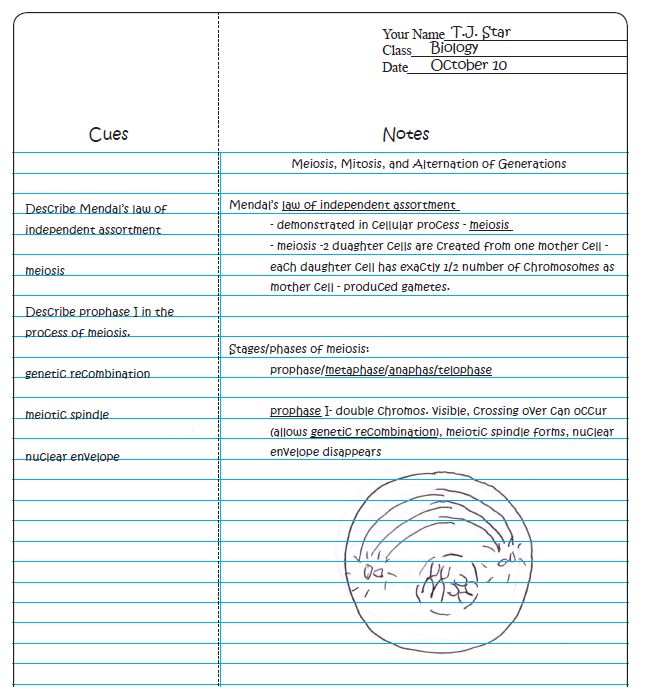
Look at the sample note page below to see how cues are used to prompt your thinking about the content of your notes. To find the key information and write your cues, ask yourself why specific information matters and how it might be written as a test question. If you find the information is not important, do not include it in your cues. As you consider which questions you will write for your cues, you will begin to process information and think using more complex levels of learning than was required for note taking.

Using the sample as a guide, what level of learning must you demonstrate to complete the cues column?
- more complex thinking than is required for taking notes
- the same level as is required for taking notes
- a lower level than is required for taking notes
Writing cues for your notes will lead to more complex thinking than is required for taking notes.
Writing cues for your notes will lead to more complex thinking than is required for taking notes.
Writing cues for your notes will lead to more complex thinking than is required for taking notes.
When completing the cues column, which of the following questions will help you identify the information you should include?
- What is the point of the lecture? How will I use this in the future?
- Why does this matter? How could this be written as a test question or item?
- How does this connect to my goals? Why is this important to me?
- When will I use this again? Do I think this will be on a test?
To write your cues, ask yourself why specific information matters and how it might be written as a test question.
To write your cues, ask yourself why specific information matters and how it might be written as a test question.
To write your cues, ask yourself why specific information matters and how it might be written as a test question.
To write your cues, ask yourself why specific information matters and how it might be written as a test question.
Summary
 Questions answered correctly:
Questions answered correctly:
 Questions answered incorrectly:
Questions answered incorrectly:
